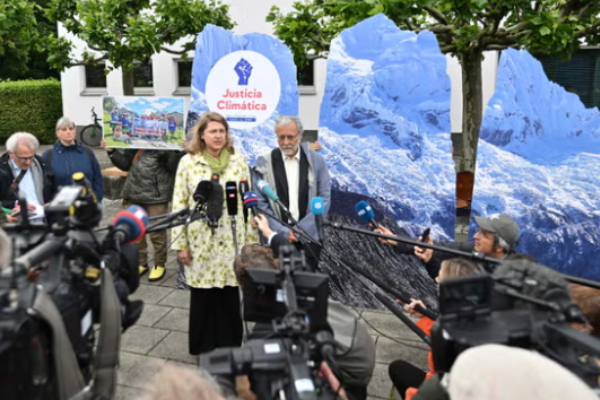A German court has dismissed a Peruvian farmer’s groundbreaking climate lawsuit, which sought damages from energy firm RWE, saying that its historical greenhouse gas emissions endangered his home.
Saúl Luciano Lliuya, a farmer and mountain guide from Huaraz, Peru, claims that melting Andean glaciers pose a risk of catastrophic flooding.
The 44-year-old farmer, whose family harvests corn, wheat, barley, and potatoes, said he chose to sue RWE because it is one of Europe’s largest pollutants, rather than for any specific company projects near his home.
Lliuya has claimed that RWE is accountable for almost 0.5% of global man-made emissions since the industrial revolution and must bear a proportionate amount of the costs associated with climate change adaptation, based on data from the Carbon Majors database, which records historical emissions from major fossil fuel producers.
Based on Lliuya’s calculations, RWE’s part of the $3.5 million flood defense project that his region needs would be about $17,500.

RWE, which is closing its coal-fired power plants and has never operated in Peru, disputes legal accountability and contends that climate change is a global problem with numerous causes.
The state court in Hamm, in western Germany, dismissed the lawsuit on Wednesday and said no appeal was possible in the decade-old case.
Presiding judge Rolf Meyer said the experts’ estimate of the 30-year damage risk to the plaintiff’s house of 1 per cent was not enough to take the case further. Had there been a larger adverse effect, a polluter could have been made to slash emissions or pay damages, Meyer said.
Meyer said the plaintiff’s case was argued coherently and that it was “like a microcosm of the world’s problems between people of the southern and the northern hemisphere, between the poor and the rich.”
Experts predicted that the lawsuit will set a key precedent in the struggle to make major polluters accountable for climate change.
RWE claimed that the case is legally inadmissible and creates a dangerous precedent by making individual emitters responsible for global climate change.
It believes that climate solutions should be addressed through state and international legislation rather than the courts.
Judges and experts from Germany will visit Peru in 2022 as part of the case.





